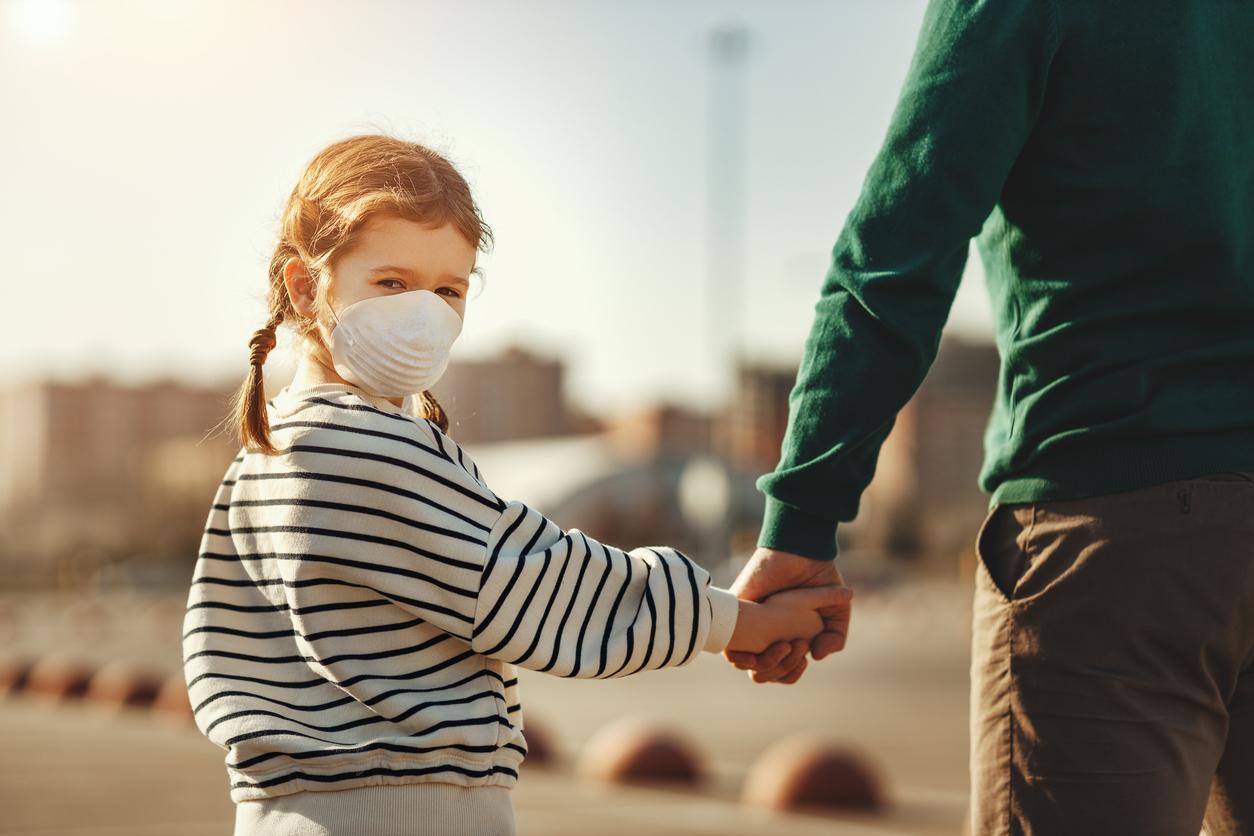- What is stomach cancer?
- What are the causes and risk factors?
- What are the first symptoms?
- What are the stages (diagnosis)?
- What treatments?
- What prognosis and life expectancy in 2022?
- Can stomach cancer be prevented?
What is stomach cancer?
Adenocarcinoma that develops in the inner superficial layer of the stomach is the most common form of stomach cancer or gastric cancer (over 90% of cases). There are two types of stomach cancer: distal gastric cancer (lower part of the stomach) and cancer proximal to the stomach-oesophageal junction (cardia). Other stomach tumors include stromal tumors (sarcomas), endocrine tumors or lymphomas. “These forms of rare stomach cancer are treated differently than adenocarcinoma”informs Dr. Jean-Baptiste Méric, oncologist and director of the public health and care center of the National Cancer Institute.
In France, approximately 6,500 new cases of stomach cancer are diagnosed each year. THE stomach cancer often affects people over 65and especially men. “The incidence of this cancer has decreased significantly since the 1970s and 1980s thanks to the reduction in exposure to certain risk factors, in particular the consumption of excess salt, linked to the preservation of food by salting, with the development of refrigerators”, explains Dr Cindy Neuzillet, medical oncologist at the Institut Curie, responsible for the digestive pathway at the Saint-Cloud site.
What is stomach cancer?
It exists recognized risk factors for stomach cancer :
- mainly secondary chronic gastritis Helicobacter pylori infection,
- smoking,
- a salty and smoked food (rich in nitrates) and low in fresh vegetables and fruits,
- familial predisposition with or without hereditary genetic cause (including Lynch syndrome).
“Distal gastric cancer which often presents as an ulcerated lesion is linked to the presence of the bacterium Helicobacter pylori, informs Dr. Neuzillet. More than 70% of the French population carries this bacterium, but stomach cancer is linked to the meeting of individual predisposition and the bacterium. Not all people infected with this bacterium develop chronic gastritis, and of these only one in 100 will progress to gastric cancer.”says Dr. Neuzillet.
“The more proximal cancers, at the junction between the stomach and the esophagus (cancers of the cardia) are linked to gastroesophageal reflux and obesity, which are on the increase”, she specifies.
What are the first symptoms?
THE stomach body cancer (distal cancer) is indicated by:
- pain in the pit of the stomach (epigastric pain similar to that of an ulcer),
- of the repeated nausea and vomiting,
- a loss of appetite,
- a weightloss,
- asthenia (great tiredness).
- Cardia cancers are manifested by dysphagia, difficulty swallowing“, further indicates Dr. Neuzillet.
“These symptoms are not specific to stomach cancer and may have other causes. It is recommended to consult your doctor so that he can determine the origin”, advises Dr. Jean-Baptiste Méric. “The long asymptomatic nature of these tumors (the disease develops without apparent symptoms) explains why the majority of stomach cancers are diagnosed at an advanced stage“he explains.
What are the stages (diagnosis)?
THE stomach cancer diagnosis is done with an esophagogastroduodenal endoscopy (fibroscopy) during which biopsies are performed. The assessment of cancer extension is made using a thoraco-abdomino-pelvic scanner (computed tomography). If the disease is a localized stage, an echo-endoscopy is carried out to better visualize the tumour. The TNM classification includes 4 stages, ranging from superficial localized disease to metastatic cancer.
What treatments?
Treatment depends on the stage of stomach cancer. “The localized stages are treated surgically, even endoscopically. Very often, the surgery is framed by chemotherapy”, informs Dr. Neuzillet. When the cancer is at an inoperable stage, it is treated with chemotherapy. “In some cases, immunotherapy is possible when certain biological markers are present”, says the oncologist. “20% of stomach cancers are also sensitive to anti-HER2 antibody-targeted therapies”, she indicates.
What prognosis and life expectancy in 2022?
“If a decrease in incidence (number of new cases per year) and mortality is observed in men and women (probably due to a decrease in the prevalence of Helicobacter Pylori infection and a decrease tobacco consumption), this cancer has a poor prognosis”, says Dr. Meric. Indeed, 5 years after diagnosis, only 30% of patients are still alive (they were 25% in 1990).
Can stomach cancer be prevented?
“Cardia cancers can be prevented by fighting obesity, sedentary lifestyle and gastroesophageal reflux disease (GERD), distal gastric cancers by eliminating Helicobacter pylori bacteria when found”, informs Dr. Neuzillet. The treatment for this bacterium consists of taking antibiotics and antacids. “There must be screening for this bacterium (we become infected with Helicobacter pylori in childhood) in people who have a first-degree relative with stomach cancer”, explains Dr. Neuzillet.
This screening is done by a respiratory or blood test (serology) in people under 45 years old, with fibroscopy beyond 45 years old in order to be able to detect any precancerous lesions. Once the bacteria has been eradicated, the risk of having that bacteria again is low. “Tobacco being an avoidable risk factor for this cancer, stopping its consumption reduces the risk for this cancer but also for other locations. A varied and balanced diet is also a means of prevention with particular attention consumption of salt and salty foods that increase the risk of stomach cancer”adds Dr. Méric.
Sources:
- Interview with Dr Cindy Neuzillet, medical oncologist at the Institut Curie, responsible for the digestive pathway at the Saint-Cloud site, May 2022.
- Interview Dr Jean-Baptiste Méric, oncologist and director of the public health and care center of the National Cancer Institute, May 2022.
- TNCD – Chapter 2: Stomach cancer – 06/06/2018
- Stomach cancer brochure, ARC Foundation
- Report – Volume 1 – Solid tumors – National estimates of cancer incidence and mortality in metropolitan France between 1990 and 2018, National Cancer Institute, July 2019
- Survival of people with cancer in metropolitan France 1989-2018- Summary of results: solid tumors and hematological malignancies, National Cancer Institute, July 2021
Read also:
- What do I eat for heartburn?
- Constipation: causes, what to do?
- 6 reasons why your stomach is rumbling


















